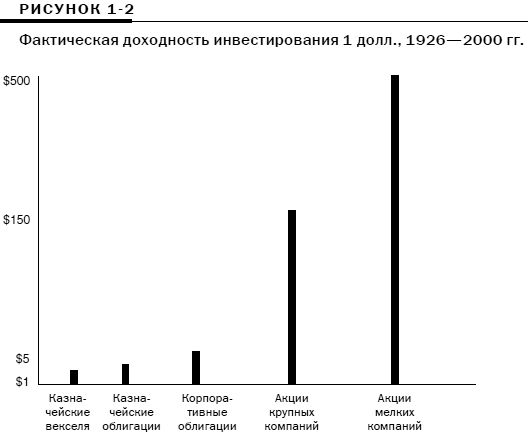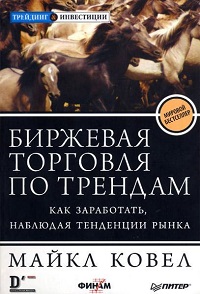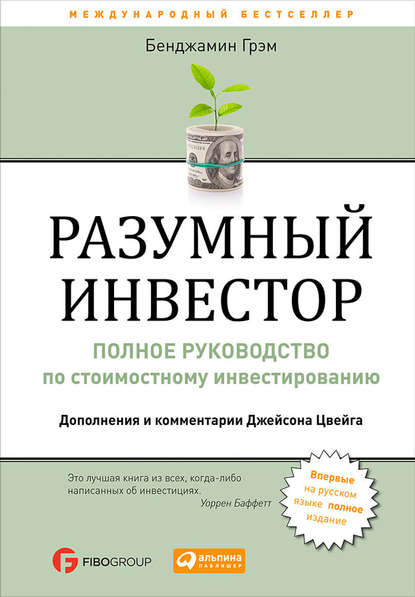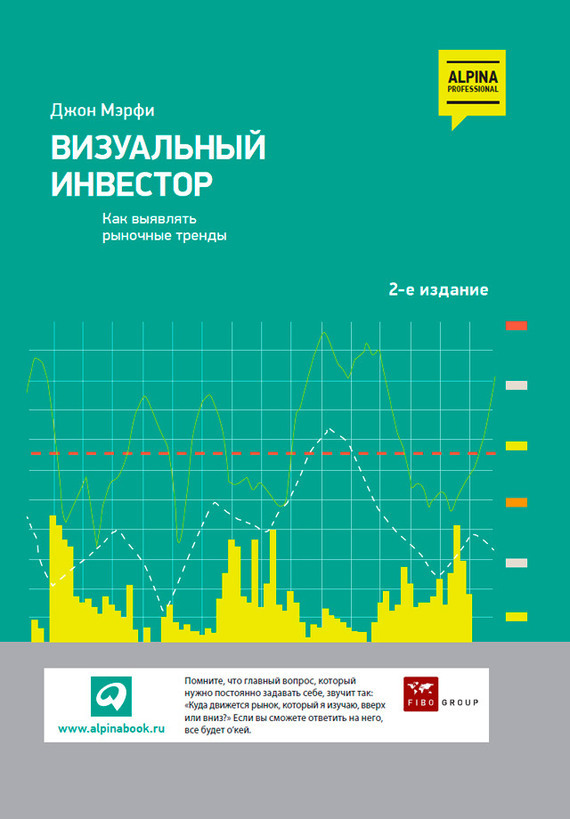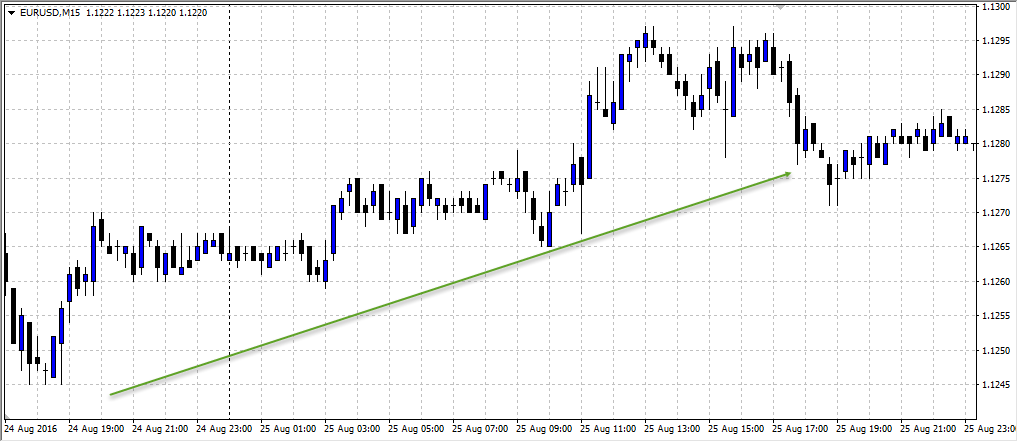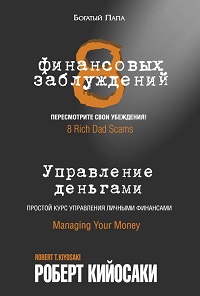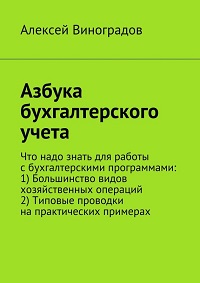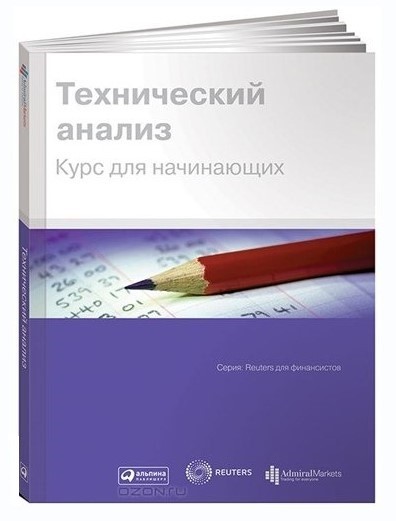
Tax secret st 102 nk rf. Theory of everything. The Federal Tax Service
Access to information constituting tax secrets is available to officials determined by the federal executive body authorized for control and supervision in the field of taxes and fees, the federal executive body authorized in the field of internal affairs, and the federal state body exercising criminal powers court proceedings, by the federal executive body authorized in the field of customs.
4. The loss of documents containing information constituting a tax secret, or the disclosure of such information shall entail liability provided for by federal laws.
5. The provisions of this article in terms of determining the composition of information on taxpayers (payers of insurance premiums) constituting a tax secret, a ban on the disclosure of said information, requirements for a special regime of storage and access to said information, and also responsibility for the loss of documents containing this information, or the disclosure of such information applies to information about taxpayers (payers of insurance premiums) received by organizations subordinate to the federal authority local authority authorized by the control and supervision in the field of taxes and fees, entering and processing data on taxpayers (payers of insurance premiums), as well as on employees of these organizations.
6. The provisions of this article regarding the prohibition of the disclosure of information constituting tax secrets, requirements for a special regime for storing and accessing said information, liability for the loss of documents containing this information, or for the disclosure of such information shall apply to information about taxpayers (insurance payers contributions) received by state bodies, local governments or organizations in accordance with the legislation of the Russian Federation on combating corruption.
Access to information constituting a tax secret in state bodies, local self-government bodies, or organizations to which such information has been received in accordance with the legislation of the Russian Federation on combating corruption, are available to officials determined by the heads of these state bodies, local self-government bodies, or organizations.
Change Information:
Federal Law of June 28, 2013 N 134-ФЗ article 102 of this Code is supplemented by paragraph 7
7. The provisions of this article regarding the prohibition of the disclosure of information constituting tax secrets, requirements for a special regime for storing and accessing said information, responsibility for the loss of documents containing this information, or for the disclosure of such information shall apply to information about the size and sources incomes of employees (their spouses and minor children) of organizations with state participation received by state bodies in accordance with regulatory legal acts of the President of Russia Federation, Government of the Russian Federation.
Access to the information specified in this clause constituting a tax secret in state bodies to which such information has been received in accordance with regulatory legal acts of the President of the Russian Federation and the Government of the Russian Federation is available to officials determined by the heads of these state bodies.
Change Information:
Federal Law of June 8, 2015 N 150-ФЗ article 102 of this Code is supplemented by paragraph 8
8. Information contained in a special declaration submitted in accordance with the Federal Law "On the voluntary declaration by individuals of assets and accounts (deposits) in banks and on amendments to certain legislative acts of the Russian Federation", and (or) documents attached to it and (or) information recognized as tax secret taking into account the following features:
2) the disclosure of such information and the loss of the submitted special declarations and (or) the documents and (or) attached to them are the grounds for criminalizing the illegal disclosure of information constituting a tax secret in accordance with the Criminal Code of the Russian Federation;
3) an official of the tax authority to whom such information has become known cannot be held liable for refusing to testify due to circumstances that became known to him from the information specified in the first paragraph of this paragraph;
4) such information can be requested from the tax authority only at the request of the declarant himself, recognized as such in accordance with the federal law specified in the first paragraph of this paragraph;
5) if it is necessary to confirm the fact of submission to the tax authority of a special declaration and documents and (or) information annexed to the declaration, and the reliability of the information contained therein, an official of a state authority or bank, to whom, as a basis for providing guarantees, specified in paragraph one of this paragraph by the Federal Law, a copy of the special declaration was submitted with a note from the tax authority on its adoption, the right to send it to the federal authority authority authorized by the control and supervision in the field of taxes and fees, for reconciliation with the original of the special declaration, which is in centralized storage. The federal executive body authorized to control and supervise in the field of taxes and fees, within five days after receiving such a copy of the special declaration, sends a response notice whether the received copy of the special declaration matches or does not correspond to the original.
Change Information:
Article 102 is supplemented by paragraph 9 from September 3, 2018 - Federal Law of August 3, 2018 N 302-ФЗ
9. The provisions of this article regarding the prohibition of the disclosure of information constituting tax secrets, requirements for a special regime for storing and accessing said information, responsibility for the loss of documents containing this information, or for the disclosure of this information shall apply to information received by the financial authorities of the constituent entities of the Russian Federation, in the territories of which members of the consolidated group of taxpayers operate, as part of information on projected revenues alogi profit organizations in the budgets of the Russian Federation by members of a consolidated group of taxpayers in the current fiscal year, for the next fiscal year and planning period and on the factors that affect the projected income tax on the profit of organizations.
Access to the information specified in this clause constituting a tax secret in the financial bodies of the constituent entities of the Russian Federation is granted to officials determined by the heads of these financial bodies.
Section 102. Tax Secret
- checked today
- code of January 28, 2019
- entered into force 01.01.1999
There are no new editions of the article that have not entered into force.
Compare with the editorial of the article dated 11/27/2017 01/01/2017 01/06/2016 08/06/2015 01/01/2015 01/01/2014 06/30/2013 01/01/2013 01/01/2013 01/01/2012 12/22/2011 01/15/2011 07/28/2008 05/31/2007 01/08/2004 07/01/2003 06/01/2000 08/17/1999 01/01/1999
Tax secrecy is any information received by the tax authority, internal affairs bodies, investigative authorities, state extra-budgetary fund body and customs authority about the taxpayer, payer of insurance premiums, with the exception of information:
13) on registration of individuals with the tax authorities in accordance with paragraph 7.3 of Article 83 of this Code.
Information about the organization specified in subparagraph 3 (in terms of information on the amounts of arrears and arrears of interest and fines (for each tax and collection, insurance premium), tax offenses and measures of responsibility for their commission) and in subparagraphs 7, 9 - 11 of paragraph 1 of this article are posted in the form of open data on the official website of the federal executive body authorized for control and supervision in the field of taxes and fees, in the information and telecommunication network "Internet", with the exception of information about the organization, with stavlyayuschih state secret. Information to be posted shall not be submitted upon request, with the exception of cases provided for by federal laws.
The dates and period for posting the information specified in the first paragraph of this paragraph, the procedure for their formation and placement are approved by the federal executive body authorized to control and supervise taxes and fees.
Tax secrecy is not subject to disclosure by tax authorities, internal affairs bodies, investigative bodies, bodies of state extra-budgetary funds and customs authorities, their officials and involved specialists, experts, with the exception of cases provided for by federal law.
The disclosure of tax secrets includes, in particular, the use or transfer to another person of information constituting a trade secret (production secret) of a taxpayer, payer of insurance premiums and becoming known to an official of the tax authority, internal affairs body, investigative body, state extra-budgetary fund or customs authority , a specialist or expert involved in the performance of their duties.
It is not disclosure of tax secrecy by the tax authority providing information to the responsible member of the consolidated group of taxpayers about the members of this group constituting tax secrets, as well as the submission to the financial authorities of the constituent entities of the Russian Federation in whose territories members of the consolidated group of taxpayers are engaged, information on the projected income tax revenues organizations to the budgets of the constituent entities of the Russian Federation from a consolidated group of cash goplatelschikov in the current fiscal year, for the next fiscal year and planning period and on the factors that affect the projected income tax profits obtained in accordance with paragraph 9, paragraph 3 of Article 25.5 of this Code.
Information constituting tax secrets received by the tax authorities, internal affairs bodies, investigative bodies, bodies of state extra-budgetary funds or customs bodies has a special regime of storage and access.
Access to information constituting tax secrets is available to officials determined by the federal executive body authorized for control and supervision in the field of taxes and fees, the federal executive body authorized in the field of internal affairs, and the federal state body exercising criminal powers court proceedings, by the federal executive body authorized in the field of customs.
The loss of documents containing information constituting a tax secret, or the disclosure of such information entails liability provided for by federal laws.
The provisions of this article in terms of determining the composition of information about taxpayers (payers of insurance premiums) constituting a tax secret, a ban on the disclosure of said information, requirements for a special regime of storage and access to said information, as well as liability for the loss of documents containing this information, or disclosure Such information applies to information about taxpayers (payers of insurance premiums) received by organizations subordinate to the federal executive body Noah authorities in charge of control and supervision in the field of taxes and fees, is used to enter and process data on taxpayers (payers of insurance premiums), as well as the employees of these organizations.
The provisions of this article regarding the prohibition of the disclosure of information constituting tax secrets, requirements for a special regime for storing and accessing said information, liability for the loss of documents containing this information, or for the disclosure of such information apply to information about taxpayers (payers of insurance premiums) received by state bodies, local governments or organizations in accordance with the legislation of the Russian Federation on combating corruption.
Access to information constituting a tax secret in state bodies, local self-government bodies, or organizations to which such information has been received in accordance with the legislation of the Russian Federation on combating corruption, are available to officials determined by the heads of these state bodies, local self-government bodies, or organizations.
The provisions of this article regarding the prohibition of the disclosure of information constituting tax secrets, requirements for a special regime for storing and accessing said information, responsibility for the loss of documents containing this information, or for the disclosure of such information apply to information about the size and sources of income of employees (their spouses and minor children) of organizations with state participation, received by state bodies in accordance with regulatory legal acts of the President of Russia Second Federation of the Russian Federation.
Access to the information specified in this clause constituting a tax secret in state bodies to which such information has been received in accordance with regulatory legal acts of the President of the Russian Federation and the Government of the Russian Federation is available to officials determined by the heads of these state bodies.
Information contained in a special declaration submitted in accordance with the Federal Law "On the voluntary declaration by individuals of assets and accounts (deposits) in banks and on amendments to certain legislative acts of the Russian Federation", and (or) documents attached to it and (or ) information recognized as tax secret, taking into account the following features:
- 1) such information is recognized as tax secret without exceptions established by subparagraphs 1 - 3 and 5 - 8 of paragraph 1 of this article;
- 2) the disclosure of such information and the loss of the submitted special declarations and (or) the documents and (or) attached to them are the grounds for criminalizing the illegal disclosure of information constituting a tax secret in accordance with the Criminal Code of the Russian Federation;
- 3) an official of the tax authority to whom such information has become known cannot be held liable for refusing to testify due to circumstances that became known to him from the information specified in the first paragraph of this paragraph;
- 4) such information can be requested from the tax authority only at the request of the declarant himself, recognized as such in accordance with the federal law specified in the first paragraph of this paragraph;
- 5) if it is necessary to confirm the fact of submission to the tax authority of a special declaration and documents and (or) information annexed to the declaration, and the reliability of the information contained therein, an official of a state authority or bank, to whom, as a basis for providing guarantees, specified in paragraph one of this paragraph by the Federal Law, a copy of the special declaration was submitted with a note from the tax authority on its adoption, the right to send it to the federal authority tionary authority authorized on control and supervision in the field of taxes and fees, for a reconciliation with the original special declaration, located on the central storage. The federal executive body authorized to control and supervise in the field of taxes and fees, within five days after receiving such a copy of the special declaration, sends a response notice whether the received copy of the special declaration matches or does not correspond to the original.
The provisions of this article regarding the prohibition of the disclosure of information constituting tax secrets, requirements for a special regime for storing and accessing said information, responsibility for the loss of documents containing this information, or for the disclosure of this information apply to information received by the financial authorities of the Russian Federation Federations in the territories of which members of a consolidated group of taxpayers operate, as part of information on projected revenues for logs on the profits of organizations to the budgets of the constituent entities of the Russian Federation from members of a consolidated group of taxpayers in the current financial year, for the next financial year and planning period, and on factors affecting the planned revenue of corporate income tax.
Access to the information specified in this clause constituting a tax secret in the financial bodies of the constituent entities of the Russian Federation is granted to officials determined by the heads of these financial bodies.
1. Tax secret shall be any information about the taxpayer received by the tax authority, internal affairs bodies, investigative authorities, state extra-budgetary fund body and customs authority, with the exception of information: 1) that is publicly available, including those that have become with the consent of their owner - the taxpayer; 2) the taxpayer identification number; 3) on violations of the legislation on taxes and fees and measures of responsibility for these violations; 4) provided by the tax (customs) or law enforcement authorities of other states in accordance with international treaties (agreements), of which the Russian Federation is one of the parties, on mutual cooperation between tax (customs) or law enforcement authorities (in terms of information provided to these authorities); 5) provided to the election commissions in accordance with the legislation on elections based on the results of audits by the tax authority of information on the size and sources of income of the candidate and his spouse, as well as property owned by the candidate and his spouse; 6) provided to the State Information System on State and Municipal Payments, provided for by the Federal Law of July 27, 2010 N 210-ФЗ "On the Organization of the Provision of State and Municipal Services"; 7) on special tax regimes applied by taxpayers, as well as on the participation of a taxpayer in a consolidated group of taxpayers. 2. Tax secret shall not be disclosed by tax authorities, internal affairs bodies, investigative bodies, bodies of state extra-budgetary funds and customs bodies, their officials and involved specialists, experts, with the exception of cases provided for by federal law. The disclosure of tax secrets includes, in particular, the use or transfer to another person of information constituting a commercial secret (production secret) of the taxpayer and made known to the official of the tax authority, internal affairs body, investigative body, state extra-budgetary fund or customs body, a specialist involved, or an expert in the performance of their duties. 2.1. It is not disclosure of tax secrets that the tax authority provides the responsible member of the consolidated group of taxpayers with information about the members of this group constituting the tax secret. 3. The information constituting tax secret received by the tax authorities, internal affairs bodies, investigative bodies, bodies of state extra-budgetary funds or customs bodies has a special regime of storage and access. Access to information constituting tax secrets is available to officials determined by the federal executive body authorized for control and supervision in the field of taxes and fees, the federal executive body authorized in the field of internal affairs, the federal state body exercising criminal powers court proceedings, by the federal executive body authorized in the field of customs. 4. The loss of documents containing information constituting a tax secret, or the disclosure of such information shall entail liability provided for by federal laws. 5. The provisions of this article in terms of determining the composition of information about taxpayers constituting a tax secret, a ban on the disclosure of said information, requirements for a special regime of storage and access to said information, as well as liability for the loss of documents containing this information, or the disclosure of such information are distributed information on taxpayers received by organizations subordinate to the federal executive body authorized for control and supervision in the field of taxation levies and fees that enter and process data on taxpayers, as well as on employees of these organizations. 6. The provisions of this article regarding the prohibition of the disclosure of information constituting tax secrets, requirements for a special regime for storing and accessing said information, liability for the loss of documents containing this information, or for the disclosure of such information shall apply to information about taxpayers received in government bodies, local governments or organizations in accordance with the legislation of the Russian Federation on combating corruption. Access to information constituting a tax secret in state bodies, local self-government bodies, or organizations to which such information has been received in accordance with the legislation of the Russian Federation on combating corruption, are available to officials determined by the heads of these state bodies, local self-government bodies, or organizations. 7. The provisions of this article regarding the prohibition of the disclosure of information constituting tax secrets, requirements for a special regime for storing and accessing said information, responsibility for the loss of documents containing this information, or for the disclosure of such information apply to information about the size and sources incomes of employees (their spouses and minor children) of organizations with state participation received by state bodies in accordance with regulatory legal acts of the President of Russia Federation, Government of the Russian Federation. Access to the information specified in this clause constituting a tax secret in state bodies to which such information has been received in accordance with regulatory legal acts of the President of the Russian Federation and the Government of the Russian Federation is available to officials determined by the heads of these state bodies.
Legal advice under Art. 102 Tax Code
The answer to the question is given by phone
- Lawyer answer:
I already wrote something in the comments, having run through interesting discussions. You're a professional, where are the special norms, where is the analysis? First, I repeat a little: the information that someone who is debtor in any kind of enforcement proceedings cannot belittle someone's business reputation. Part of the violation of rights, the source of violation of rights is not a register, it is in the heads of people. 1. There are misconceptions. and the first is that if the debtor in enforcement proceedings means the offender. I have already given an example: I signed an amicable agreement, divided the fee in half and now the debtor. I didn’t break anything, no obligations. Through the efforts of our Fuhrer, society is in pain with an accusatory approach. Failure to fulfill obligations is often innocent, that is, “negligence” does not follow from the fact of having a debt. 2. The presence of enforcement proceedings (at least dozens) does not in itself indicate a financial situation or, all the more, insolvency. Executive production was excited and the debtor paid off the debt, etc. The collector decided not to offer voluntary execution, but immediately transferred the executive to PSP 3. T. n. The “registry” is not. This is very fragmentary information about issued executives indicating judicial acts and numbers of executive documents. Moreover, if you pay attention, the information provided is NOT UFSSP information. There is no data on the numbers of enforcement proceedings, on the date of initiation of the executive proceedings. This information is ships. 4. You can "play" with the so-called. "registry" to make sure. that it does not contain reliable and complete information, the information is randomly stuck. For example, type “AvtoVAZ.” And then “Pikalevo,” etc. 5. If you pay attention to Art. 5 of the Law on Personal Data, and the Federal Law of the Russian Federation On Information, Information Technologies and the Protection of Information, you will easily see administrative violations, the responsibility for the commission of which is provided for in Art. 13.11 -13.13 Administrative Code of the Russian Federation. In particular, there is no compliance with the requirements of paragraph 4 of paragraph 1 of Art. 5 of the Law on personal data: the reliability of personal data, their sufficiency for the purposes of processing, the inadmissibility of the processing of personal data, excessive in relation to the purposes stated during the collection of personal data. There is some base irrelevant. false, incomplete information, it is issued as a register of debtors, people are misled. Neither the order of the "registry", nor the rules, nor the relevance. There is practically no data processing: they dumped something once. 6. With regard to administering responsibility for disclosing information with limited access, I did not see this violation, because I did not see information about individuals-debtors. If there was such information, then we could talk about it. including through the prism of Art. 84, 102 of the Tax Code of the Russian Federation, Art. Art. 85-90 of the Labor Code of the Russian Federation, etc. By the way, please note: even PSRNs are not indicated. That is, violations occur in the field of data processing rules, misleading (mass) occurs. In other words. we looked at the "registry" we saw a debtor there, and he is no longer a debtor. We looked at the register, did not see a debtor in it, and he owed a dozen and a half of production. Disinformation. For what purpose? For check. They are kicked that they are dense. so they make a look “civilized”, but in reality they violate the rights to information, the rights to protect information, etc. Here, something like that. sorry, that several "on the run." And, by the way, if the request is sent normally, it’s with reference to the provisions of the Law on Personal Data and the Law on the Protection of Information, that is, literally quoting: by whom, when are the rules approved. where published. what is the order of maintaining the registry, etc. If you somehow fundamentally "stuck", I can help.
It is usually the other way around: in the Russian Federation -102, and internationally -100 ... I think our tax will be happy if you pay more!
- Lawyer answer:
Most often, the organization withholds alimony from employee earnings. Alimony can be fixed in a fixed amount (for example, if the employee’s earnings are constantly changing) or as a percentage of the salary (1/4, 1/3 or 1/2 of the income). This is stated in articles 81, 83, 85, 87, 91, 98 of the Family Code of the Russian Federation. Alimony from an employee for the maintenance of his children over 18 years of age is withheld only if there is a note on this in the writ of execution. This is explained as follows. In exceptional cases, the court can increase the period for the payment of alimony after the child reaches the age of 18 years. For example, if a child is disabled and needs financial assistance (Article 85 of the Family Code of the Russian Federation) or is seriously ill (Article 86 of the Family Code of the Russian Federation). The alimony established in a fixed amount is indexed. The organization is required to index the payment on its own. This can be done on the basis of the order of the head of the organization in an arbitrary form. Such rules are established by paragraph 1 of Article 117 of the Family Code of the Russian Federation and part 1 of Article 102 of the Law of October 2, 2007 No. 229-FZ. Indexation should be carried out in proportion to an increase in the minimum wage (Clause 1, Article 117 of the Family Code of the Russian Federation). When indexing, the minimum wage established for regulating wages is used. It is given in Article 1 of the Law of June 19, 2000 No. 82-FZ. The amounts of deductions for executive documents are collected from all employee income (from salaries, bonuses, income paid in kind, etc.). This procedure is established by Article 98 of the Law of October 2, 2007 No. 229-FZ. The Family Code of the Russian Federation does not oblige organizations to withhold child support from employee income more than once a month (Article 109 of the Family Code of the Russian Federation). Indeed, child support is a monthly penalty (Articles 81, 85, 87, 91, 98 of the Family Code of the Russian Federation). In addition, the organization can determine the exact amount of employee income with which to keep child support only at the end of the month. Therefore, alimony is not withheld from accrued advances. Regardless of the number of executive documents received by an employee, the maximum amount of deductions is generally limited to 50 percent of his monthly income. At the same time, the amount of income reduced by the amount of personal income tax is used to calculate deductions. Such rules are established by parts 1 and 2 of article 99 of the Law of October 2, 2007 No. 229-FZ. If half of the employee’s monthly income is not enough to pay off the full amount of the debt, its balance is withheld in the following months. Holding debt under several executive documents, the order of repayment of claims should be observed. The base value on the basis of which the maximum retention rate is calculated is the total income of the employee remaining after the personal income tax withholding (part 1 of article 99 of the Law of October 2, 2007 No. 229-ФЗ). Therefore, before determining the monthly amount of penalties, it is necessary to calculate personal income tax on employee income. When calculating this tax, the usual procedure is provided for by Chapter 23 of the Tax Code of the Russian Federation, that is, the employee is provided with standard (Article 218 of the Tax Code), and in some cases property tax deductions (Article 220 of the Tax Code). Requirements for writ of execution of one turn should be paid off in proportion to the amounts that must be withheld for each of them (part 3 of article 111 of the Law of October 2, 2007 No. 229-FZ). The amount to be deducted from one writ of execution of one queue should be calculated according to the formula: The size of deductions from one writ of execution per month \u003d Total deductions from the writ of execution: Total amount of deductions for all writings of one turn × Maximum amount of deductions per employee per month
- Lawyer answer:
1. bailiffs come only if there is a writ of execution or notarial documents having the power of writ of execution2. first, the plaintiff must conduct the case in court. here you need to look at the details (the statute of limitations has passed, a defect in the form, etc.). theoretically, any receipt can be challenged (unless, of course, it is notarized) 3. bailiffs come only if the request is not fulfilled voluntarily. 4. in court, you can ask for a deferral or installment plan. the bailiff can do the same. 5. There is a list of property that cannot be enforced. as practice shows, bailiffs examine all property located in the apartment by the property of the debtor. no injections affect them. that is, they first describe everything, and then you need to ask the court to exclude the seized property from the inventory. in such a situation, it’s easier to ask normal neighbors for the most valuable property to stay with them for some time. 446 Code of Civil Procedure of the Russian Federation 1. The enforcement of executive documents cannot be levied on the following property owned by the debtor citizen by right of ownership: household items and household items, personal items (clothing, shoes and others), excluding jewelry and other luxury goods property necessary for the professional occupation of the debtor citizen, with the exception of items whose value exceeds one hundred minimum wages established by federal law;
- Lawyer answer:
Question: During the audit of the organization by the state labor inspectorate in the CAO, violations of labor legislation committed by the former head of the organization were revealed (he personally gave accounting orders to postpone the payment of wages for some employees). These facts were not brought to the attention of the new leader in a timely manner and were revealed only during verification. Immediately after the violation was discovered, he made orders to pay off wage arrears to employees. Who is liable in this situation - the current or former head of the organization? Answer: In accordance with Art. 419 of the Labor Code of the Russian Federation, those guilty of violating labor laws and other acts containing labor law are brought to disciplinary and material liability in the manner prescribed by this Code and other federal laws, as well as civil, administrative and criminal liability in the manner established by federal laws. According to Art. 2.4 of the Code of the Russian Federation on administrative offenses, an official shall be administratively liable in the event he commits an administrative offense in connection with the failure to perform or improper performance of his official duties. In accordance with the presumption of innocence (part 1 of article 1.5 of the Administrative Code of the Russian Federation), a person (including an official) is subject to administrative liability only for those administrative offenses in respect of which his guilt is established. Thus, the responsibility should be borne by the head of the organization through whose fault the violation was committed (i.e., the former general director). Moreover, as explained in the Review of Legislation and Judicial Practice of the Supreme Court of the Russian Federation for the second quarter of 2006, approved by the Decree of the Presidium of the Supreme Court of the Russian Federation dated September 27, 2006, the termination of labor relations with the head of the enterprise, who carried out organizational and administrative functions, does not exclude the possibility of initiating proceedings about an administrative offense in relation to this person and bringing him to administrative responsibility, since the offense was committed by him during the performance of official duties. Thus, since at the time of the offense under Part 1 or Part 2 of Art. 5.27 of the Code of Administrative Offenses of the Russian Federation, the specified person was the subject of an offense, then he can be brought to administrative responsibility regardless of the fact that by the time the case was initiated, such a person had lost the status of the head of the enterprise and ceased to carry out organizational and administrative functions. D. L. Shchurn Research Institute of Labor and Social Insurance 05/27/2008
- Lawyer answer:
before drawing up a statement of claim, it is necessary to draw up a claim to the contractor, and to receive from him a written explanation of the reasons for the violation of the deadlines. Next, you need to determine the territorial jurisdiction, i.e. find out in which court the complaint is being filed. after that proceed to the compilation of FM. Indicate the name of the court to which the claim is sent, the name of the legal entity, its address, the name of the defendant, its address, full name of the representatives, indicate third parties, telephones, faxes, etc. after this write the reasoning part of the application. “on that date, a contract was concluded between the plaintiff and the defendant on the performance of the construction contract. The contractor did not fulfill the obligations under the contract at the indicated time.” etc. forms can be found on the internet. further attached to the application documents. copy of the contract, response to the claim, etc. do not forget about the state duty
- Lawyer answer:
According to Art. 122 of the Tax Code of the Russian Federation Non-payment or incomplete payment of the amount of taxes entails the collection of a fine of 20 percent of the unpaid tax amount. If this act is committed intentionally - the amount of the fine will be 40 percent of the unpaid amount. Articles 198 and 199 of the Criminal Code provide for criminal liability for tax evasion. Art. 198 of the Criminal Code of the Russian Federation 1. Evasion of taxes and (or) fees from an individual by not submitting a tax return or other documents, the submission of which is mandatory in accordance with the legislation of the Russian Federation on taxes and fees, or by deliberately including them in a tax return or such documents false information committed on a large scale - shall be punishable by a fine in the amount of one hundred thousand to three hundred thousand rubles or in the amount of the wage or other income of the convicted person for a period of one year to two le Or arrest for a term of four to six months, or imprisonment for up to one year. 2. The same act, committed on an especially large scale, shall be punishable by a fine in the amount of two hundred thousand to five hundred thousand rubles or in the amount of the wage or other income of the convicted person for a period of eighteen months to three years or by imprisonment for a term of up to three years. Note. The large size in this article is the amount of taxes and (or) fees, amounting to more than one hundred thousand rubles for a period of three consecutive financial years, provided that the share of unpaid taxes and (or) fees exceeds 10 percent of taxes and (or ) fees, or in excess of three hundred thousand rubles, and in especially large amounts - an amount amounting to more than five hundred thousand rubles over a period of three consecutive financial years, provided that the share of unpaid taxes and (or) fees exceeds 20 percent payable with umm of taxes and (or) fees, or exceeding one million five hundred thousand rubles.
- Lawyer answer:
Have salaries really changed since 06/01/2008? If the year is not a mistake, and if the change in salaries occurred centrally throughout the organization, then the salary for May 2008 must be indexed by a rate of increase! If the increase occurred in the calculation period, then the payments taken into account in determining the average earnings and accrued for the period of time preceding the increase increase by coefficients. They are calculated by dividing the tariff rate (official salary, monetary remuneration) established in the month of the occurrence of the event that preserves the average earnings, by the tariff rates (official salaries, monetary remuneration) of each month of the calculation period. Check out this article with examples:
- Lawyer answer:
According to Art. 12 of the Law of the Russian Federation of 10.07.1992 N 3266-1 "On Education" (subject to amendments and additions, including subject to the revision of the Federal Law of 20.07.2000 N 102-ФЗ), the educational institution is the educational institution, t That is, it implements one or more educational programs and (or) ensures the maintenance and upbringing of students and pupils. According to paragraph 4 of this article, educational institutions, in particular, include pre-school institutions, institutions of additional education and institutions of additional education of children. Article 26 of the said Law determines that additional educational programs include educational programs of various kinds, implemented, for example, in educational institutions of continuing education (in continuing education institutions, courses, vocational guidance centers, music and art schools, art schools, orphanages creativity and in other institutions with appropriate licenses). In accordance with Art. 219 of the second part of the Tax Code of the Russian Federation (hereinafter the Code) establishes that the taxpayer is entitled to receive social tax deductions in the amount paid by the taxpayer - parent for teaching his children under the age of 24 years full-time education in educational institutions, in the amount actually performed the cost of this training, but not more than 38,000 rubles. for each child in total for both parents. The specified social tax deduction is granted if the educational institution has the appropriate license or other document confirming the status of the educational institution, as well as the taxpayer submits documents confirming its actual expenses for training. If it is indicated in your documents (contracts, receipts) that a monthly payment is made for the child's attendance (maintenance, meals), the social tax deduction provided for in Article 219 of the Code will not be provided to you.
Art. 64 of the Tax Code) In accordance with Art. 102 APC RF and Art. Art. 64, 333.41 of the Tax Code of the Russian Federation, I ASK: To defer (installment) the payment of the state fee for the period _________________________ (in accordance with Article 64 of the Tax Code). Applications: 1. Evidence of difficult financial situation. 2. The power of attorney of the representative (if the application is signed by the representative). "___" _________ ____ General Director ________________________ (representative) (signature)
Nadezhda Nikitina
hello, the question is that they sent a fine for 6 years of a defunct enterprise, that is, it was on paper, while I was sitting, they sent a 180,000 thousand fine
Daria Lazareva
you have an inn and why you need it
Yuri Dubnev
You are filming a hidden camera, or how to live on! Hello everyone, another opus from the life of Russia! Today, wandering around familiar sites, I come across the following - the Main Directorate of the Federal Bailiff Service We look at the link and see the SECURITY DESK, I wondered, what about the Constitution of the Russian Federation? Article 23 1. Everyone has the right to privacy, personal and family secrets, protection of his honor and good name. 2. Everyone has the right to privacy of correspondence, telephone conversations, postal, telegraphic and other communications. The restriction of this right is allowed only on the basis of a court decision. Article 24 1. The collection, storage, use and dissemination of information about a person’s private life without his consent is not permitted. 2. State authorities and local self-government bodies, their officials are obliged to provide everyone with the opportunity to familiarize themselves with documents and materials directly affecting their rights and freedoms, unless otherwise provided by law. That is, the STATE AUTHORITY IS ACTING WITH VIOLATION OF THE NORMS PROVIDED BY THE CONSTITUTION OF THE RUSSIAN FEDERATION. Waiting for your comments, additions and answers!
Vadim Velichko
With a simplified taxation system, are interest deductible from total income or from profit before tax ?. In this case, the enterprise falls into the category of 15%
Vladislav Barano
Article 307. Tax Code and international agreement. If the permanent establishment in the Russian Federation (a foreign organization in Germany) received - according to the principles of an international agreement - a profit of 102,000, and without this principle, according to the principles of the Tax Code of the Russian Federation 100,000, then what profit will the tax authorities of the Russian Federation tax?
Daniel Bovin
Kirill Naftali
Bailiffs may come home and describe other people's property. Setra family with her husband a child .. The plaintiff threatens the defendant that he is waiting for tidiness on a civic duty. First, he will be arrested then transferred to the criminal and the lawyer can return a disabled person 2gr from the debtor. There is no property in the quarters of the munits, only a TV and the rest is all for the family and sister. Can the bailiffs lay hands on someone else's property?
Svetlana Zhukova
Question on a field tax audit !!!. The LLC is undergoing a field tax audit. There are a lot of claims against the LLC and the head for 2007 and 2008 ... but at the same time, the Director and the Founder in one person sells the company and, accordingly, another person becomes the Boss and Director ... Who will now have claims for the past period? and where, excuse me for ignorance, can I read about this? The Tax Offense Office has now taken over us! ALREADY RESPOND AND HELP ANYONE THAN YOU CAN!
Anatoly Golemov
how to make a statement of claim to the arbitration court ?. the work performed under the construction contract is not paid
Anna Medvedeva
there is a person who owes tax of 102 thousand rubles. not going to pay, and not able to. what could he be for this ?. answer pliiz !!
Ilya Belevitinov
Denis Poganov
About the tax deduction. EXTRACT FROM THE LAW: The right to this deduction is for individuals who have spent money on their own education or training for their children (if children are under 24 years old and are studying full-time). Moreover, such an institution can be both state and non-state. The TYPE OF INSTITUTIONS (pre-school, general education, higher, etc.) does not matter either. QUESTION: Can I get a deduction for paying for kindergarten ???
People's Accounting Encyclopedia on Clerk.Ru
(as amended as of 01.01.2017)
Federal Law No. 86-FZ of June 30, 2003 amended Article 102 of this Code, which will enter into force on July 1, 2003.
See the previous article.
Section 102. Tax secret
Source GARANT
See Encyclopedias and other comments on Article 102 of the Tax Code.
See The procedure for access to confidential information of tax authorities, approved by order of the RF Ministry of Taxes and Duties of March 3, 2003 No. BG-3-28 / 96
Federal Law of July 3, 2016 No. 243-FZ amended paragraph 1 of Article 102 of this Code, which will enter into force on January 1, 2017.
1. Tax secrecy is any information received by the tax authority, internal affairs bodies, investigative bodies, state extra-budgetary fund body and customs authority about the taxpayer, payer of insurance premiums, with the exception of information:
Federal Law of July 3, 2016 No. 243-FZ amended subparagraph 1 of paragraph 1 of Article 102 of this Code, which will enter into force on January 1, 2017.
1) which are publicly available, including those that have become such with the consent of their owner - a taxpayer (payer of insurance premiums). Such consent is presented at the choice of the taxpayer (payer of insurance premiums) in respect of all information or part thereof received by the tax authority in the form, format and manner approved by the federal executive body authorized to control and supervise taxes and fees;
2) the taxpayer identification number;
By the Federal Law of May 1, 2016 No. 134-ФЗ, subparagraph 3 of paragraph 1 of Article 102 of this Code is amended to enter into force one month after the official publication of the aforementioned Federal Law
See the text of the subparagraph in the previous edition
3) on violations of the legislation on taxes and fees (including amounts of arrears and arrears of interest and penalties if any) and measures of liability for these violations;
4) provided by the tax (customs) or law enforcement authorities of other states in accordance with international treaties (agreements), of which the Russian Federation is one of the parties, on mutual cooperation between tax (customs) or law enforcement authorities (in terms of information provided to these authorities);
5) provided to the election commissions in accordance with the legislation on elections based on the results of audits by the tax authority of information on the size and sources of income of the candidate and his spouse, as well as property owned by the candidate and his spouse;
Federal Law of June 27, 2011 No. 162-ФЗ paragraph 1 of Article 102 of this Code is supplemented by subparagraph 6, which shall enter into force on January 1, 2013.
6) provided in the State Information System on state and municipal payments, provided for by the Federal Law of July 27, 2010 No. 210-ФЗ “On the Organization of the Provision of State and Municipal Services”;
Federal Law of September 30, 2013 No. 267-ФЗ paragraph 1 of Article 102 of this Code is supplemented by subparagraph 7, which shall enter into force on January 1, 2014.
7) on special tax regimes applied by taxpayers, as well as on the participation of a taxpayer in a consolidated group of taxpayers;
By the Federal Law of May 1, 2016 No. 134-ФЗ, subparagraph 8 of paragraph 1 of Article 102 of this Code is amended to enter into force one month after the official publication of the aforementioned Federal Law
See the text of the subparagraph in the previous edition
8) provided to local authorities (state authorities of cities of federal significance of Moscow, St. Petersburg and Sevastopol) in order to monitor the completeness and reliability of information provided by payers of local fees for the calculation of fees, as well as the amount of arrears for such fees;
Federal Law No. 134-ФЗ dated May 1, 2016 supplemented clause 1 of Article 102 of this Code with subparagraph 9, which will enter into force one month after the official publication of the aforementioned Federal Law
9) on the average number of employees of the organization for the calendar year preceding the year of placement of this information in the information and telecommunication network "Internet" in accordance with this article;
By Federal Law of July 3, 2016 No. 243-ФЗ, subparagraph 10 of paragraph 1 of Article 102 of this Code has been amended to enter into force on January 1, 2017.
See the text of the subparagraph in the previous edition
10) on the organization paid in the calendar year preceding the year of placement of the information in the Internet information and telecommunication network in accordance with this article, the amounts of taxes and fees (for each tax and fee) excluding the amount of taxes (fees) paid in connection with the import of goods into the customs territory of the Eurasian Economic Union, the amount of taxes paid by a tax agent, on the amount of insurance premiums;
Federal Law of May 1, 2016 No. 134-ФЗ paragraph 1 of Article 102 of this Code is supplemented by subparagraph 11, which will enter into force one month after the official publication of the aforementioned Federal Law
11) on the amounts of income and expenses according to the accounting (financial) statements of the organization for the year preceding the year the information was posted on the Internet information and telecommunication network in accordance with this article;
Federal Law of July 3, 2016 No. 244-ФЗ paragraph 1 of Article 102 of this Code is supplemented by subparagraph 12, which shall enter into force on January 1, 2017.
12) on registration with the tax authorities of foreign organizations in accordance with this Code;
By the federal law of November 30, 2016 No. 401-ФЗ, paragraph 1 of Article 102 of this Code is supplemented by subparagraph 13, which will enter into force on January 1, 2017.
13) on registration of individuals in the tax authorities in accordance with this Code.
Federal Law of July 3, 2016 No. 243-FZ amended paragraph 1.1 of Article 102 of this Code, which will enter into force on January 1, 2017.
See the text of the paragraph in the previous edition.
On the application of the provisions of paragraph 1.1 of Article 102 of this Code (as amended by the Federal Law of May 1, 2016 No. 134-ФЗ) regarding the information specified in (as amended by the Federal Law of May 1, 2016 No. 134-ФЗ) and this Code , see paragraph 2 of Article 2 of the Federal Law of May 1, 2016 No. 134-FZ
1.1. Information about the organization specified in (in terms of information on the amounts of arrears and arrears of interest and fines (for each tax and collection, insurance premium), tax offenses and measures of responsibility for their commission) and in this article are placed in the form of open data on the official website of the federal executive body authorized for control and supervision in the field of taxes and fees, in the information and telecommunication network "Internet", with the exception of information about the organization constituting a state secret . Information to be posted shall not be submitted upon request, with the exception of cases provided for by federal laws.
The dates and period for posting the information specified in this clause, the procedure for their formation and placement are approved by the federal executive body authorized to control and supervise taxes and fees.
Federal Law of July 3, 2016 No. 243-FZ amended paragraph 2 of Article 102 of this Code, which will enter into force on January 1, 2017.
See the text of the paragraph in the previous edition.
2. Tax secret shall not be disclosed by tax authorities, internal affairs bodies, investigative bodies, bodies of state extra-budgetary funds and customs bodies, their officials and involved specialists, experts, with the exception of cases provided for by federal law.
The disclosure of tax secrets includes, in particular, the use or transfer to another person of information constituting a trade secret (production secret) of a taxpayer, payer of insurance premiums and becoming known to an official of the tax authority, internal affairs body, investigative body, state extra-budgetary fund or customs authority , a specialist or expert involved in the performance of their duties.
Federal Law of November 16, 2011 No. 321-FZ supplemented Article 102 of this Code with Clause 2.1, which will enter into force on January 1, 2012, but no earlier than one month after the official publication of the aforementioned Federal Law
2.1. It is not disclosure of tax secrets that the tax authority provides the responsible member of the consolidated group of taxpayers with information about the members of this group constituting the tax secret.
Federal Law of December 28, 2010 No. 404-FZ amended paragraph 3 of Article 102 of this Code, which will enter into force on January 15, 2011.
See the text of the paragraph in the previous edition.
3. The information constituting tax secret received by the tax authorities, internal affairs bodies, investigative bodies, bodies of state extra-budgetary funds or customs bodies has a special regime of storage and access.
Access to information constituting tax secrethave officials determined respectively by the federal executive body authorized for control and supervision in the field of taxes and fees, the federal executive body authorized in the field of internal affairs, the federal state body carrying out powers in the field of criminal proceedings, the federal executive body, authorized in the field of customs.
4. The loss of documents containing information constituting a tax secret, or the disclosure of such information shall entail liability provided for by federal laws.
Federal Law of July 3, 2016 No. 243-FZ amended paragraph 5 of Article 102 of this Code, which will enter into force on January 1, 2017.
See the text of the paragraph in the previous edition.
5. The provisions of this article in terms of determining the composition of information on taxpayers (payers of insurance premiums) constituting a tax secret, a ban on the disclosure of said information, requirements for a special regime of storage and access to said information, and also responsibility for the loss of documents containing this information, or the disclosure of such information applies to information about taxpayers (payers of insurance premiums) received by organizations subordinate to the federal authority local authority authorized by the control and supervision in the field of taxes and fees, entering and processing data on taxpayers (payers of insurance premiums), as well as on employees of these organizations.
Federal Law of July 3, 2016 No. 243-FZ amended paragraph 6 of Article 102 of this Code, which will enter into force on January 1, 2017.
See the text of the paragraph in the previous edition.
6. The provisions of this article regarding the prohibition of the disclosure of information constituting tax secrets, requirements for a special regime for storing and accessing said information, liability for the loss of documents containing this information, or for the disclosure of such information shall apply to information about taxpayers (insurance payers contributions) received by state bodies, local governments or organizations in accordance with the legislation of the Russian Federation on combating corruption.
Access to information constituting a tax secret in state bodies, local self-government bodies, or organizations to which such information has been received in accordance with the legislation of the Russian Federation on combating corruption, are available to officials determined by the heads of these state bodies, local self-government bodies, or organizations.
Federal Law of June 28, 2013 No. 134-ФЗ, article 102 of this Code is supplemented by paragraph 7
7. The provisions of this article regarding the prohibition of the disclosure of information constituting tax secrets, requirements for a special regime for storing and accessing said information, responsibility for the loss of documents containing this information, or for the disclosure of such information shall apply to information about the size and sources incomes of employees (their spouses and minor children) of organizations with state participation received by state bodies in accordance with regulatory legal acts of the President of Russia Federation, Government of the Russian Federation.
part of the first Tax Code of the Russian Federation ”, amendments were made to information that is not a tax secret (published on the official Internet portal of legal information http://www.pravo.gov.ru 05/01/2016).
Tax secrecy is any information about the taxpayer received by the tax authority, internal affairs bodies, investigative authorities, state extra-budgetary fund body and customs authority, with the exception of information that is publicly available, including information that has become such with the consent of its owner - the taxpayer.
Such consent is presented at the choice of the taxpayer in respect of all information or part thereof received by the tax authority, in the form, format and manner approved by the federal executive body authorized for control and supervision in the field of taxes and fees.
Not a tax secret information:
- on violations of the legislation on taxes and fees (including amounts of arrears and arrears of interest and penalties if any) and measures of responsibility for these violations (subparagraph 3 of paragraph 1 of article 102 of the Tax Code of the Russian Federation);
-on the average number of employees of the organization for the calendar year preceding the year of placement of this information in the information and telecommunication network "Internet" in accordance with paragraph 1.1 of this article; (subparagraph 9 of paragraph 1 of Article 102 of the Tax Code of the Russian Federation);
-about paid by the organization in the calendar year preceding the year the information was posted on the Internet telecommunication network in accordance with paragraph 1.1 of this article, the amounts of taxes and fees (for each tax and fee) excluding the amounts of taxes (fees) paid in connection with the import of goods into the customs territory of the Eurasian Economic Union, the amount of taxes paid by a tax agent; (subparagraph 10 of paragraph 1 of Article 102 of the Tax Code of the Russian Federation);
-on the amounts of income and expenses according to the accounting (financial) statements of the organization for the year preceding the year of placement of this information in the information and telecommunication network "Internet" in accordance with paragraph 1.1 of this article (subparagraph 11 of paragraph 1 of article 102 of the Tax Code of the Russian Federation).
In accordance with paragraph 1.1 of Article 102 of the Tax Code of the Russian Federation, information on the organization specified in subparagraph 3 (in terms of information on the amounts of arrears and arrears of interest and penalties (for each tax and duty), tax offenses and measures of responsibility for their commission) and in subparagraphs 7, 9 - 11 of paragraph 1 of this article are posted in the form of open data on the official website of the federal executive body authorized for control and supervision in the field of taxes and fees, in the information and telecommunication network "Internet", except for opinions on organizations constituting a state secret.
Information to be posted shall not be submitted upon request, with the exception of cases provided for by federal laws. This Federal Law shall enter into force one month after the date of its official publication.
The provisions of paragraph 1.1 of Article 102 of the first part of the Tax Code of the Russian Federation (as amended by this Federal Law) regarding the information specified in subparagraph 3 (as amended by this Federal Law) and subparagraph 7 of paragraph 1 of Article 102 of part one of the Tax Code of the Russian Federation shall apply:
1) to tax offenses, decisions on bringing to responsibility for the commission of which entered into force after the date of entry into force of this Federal Law, and measures of responsibility for their commission;
2) information on the amounts of arrears and arrears of interest and fines arising from the taxpayer (payer of fees) on the day this Federal Law comes into force, as well as the amounts of arrears and arrears of fines and penalties revealed by the tax authority after the day this Federal Law comes into force;
3) information on special tax regimes applied by the taxpayer and on the participation of the taxpayer in a consolidated group of taxpayers - starting from January 1, 2016.


